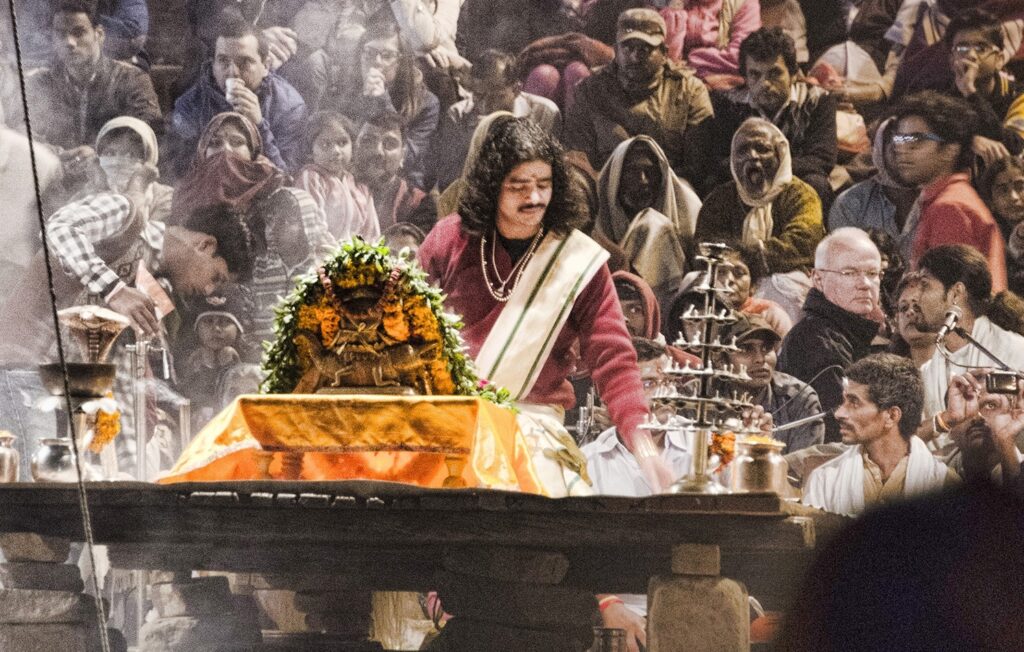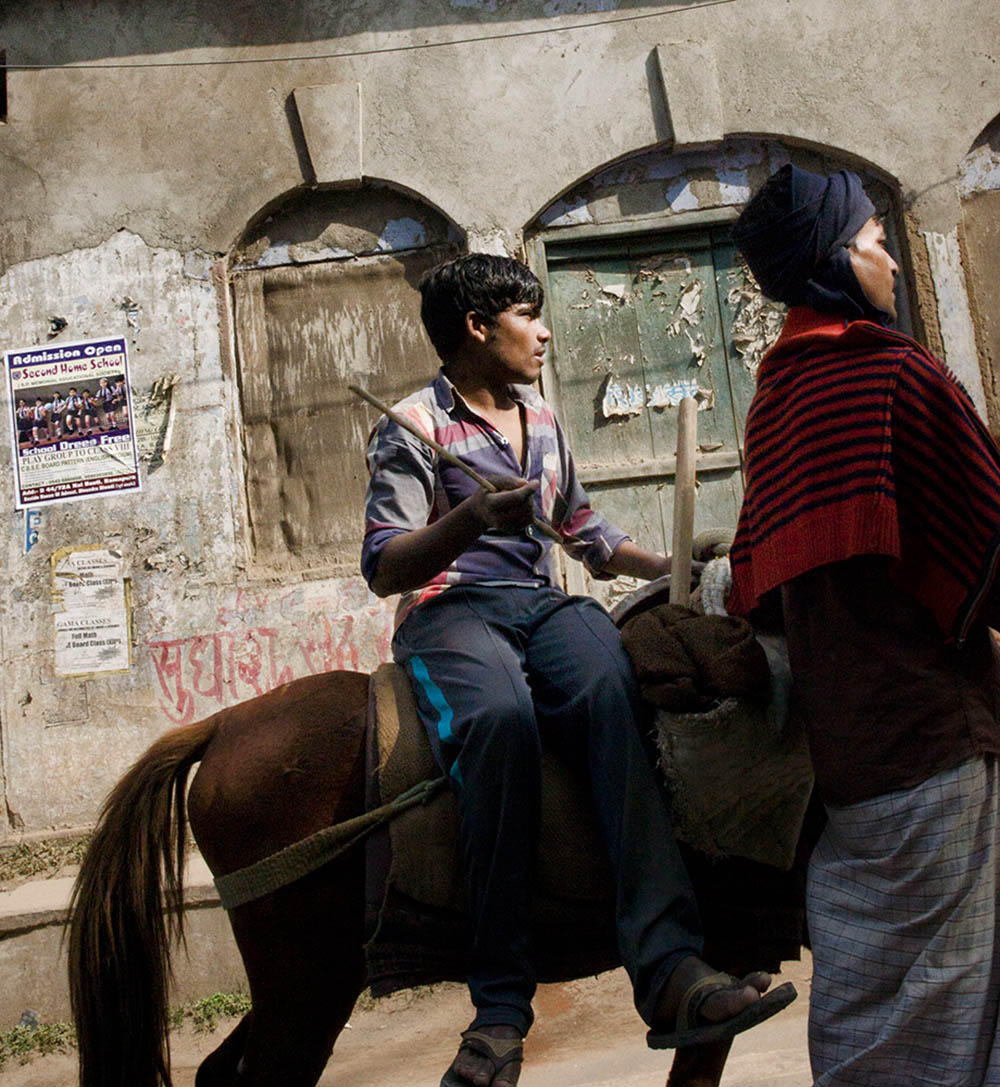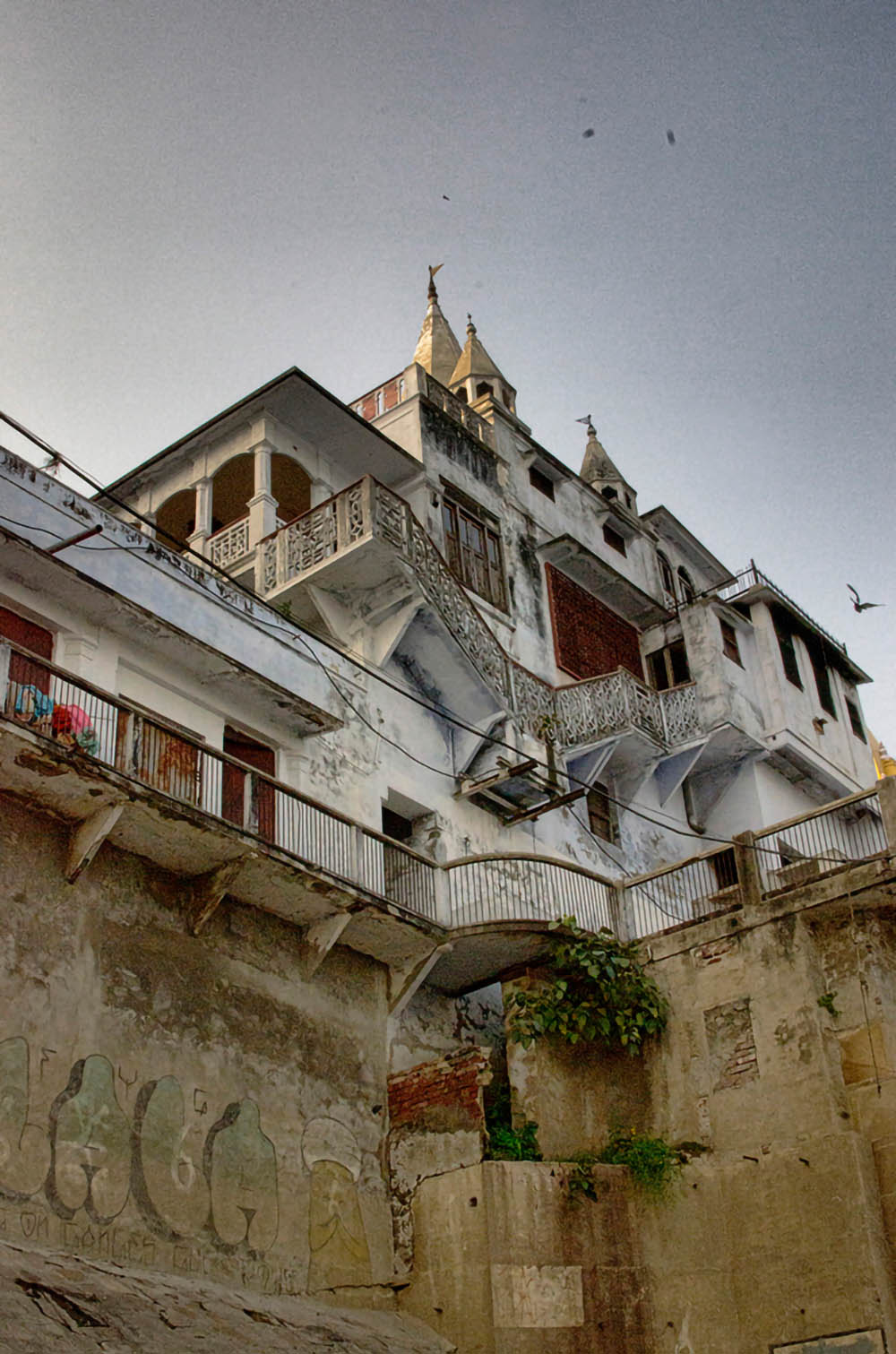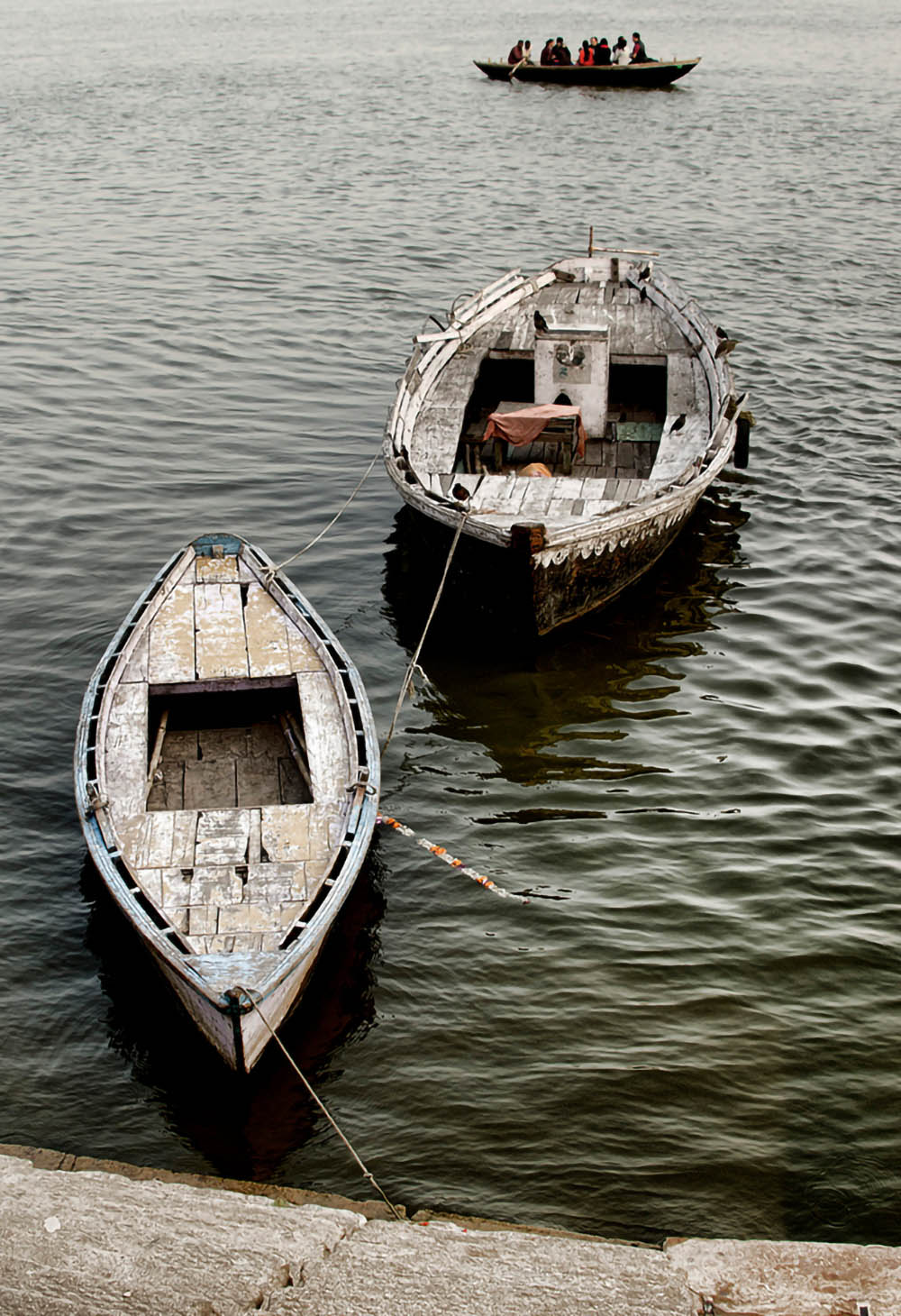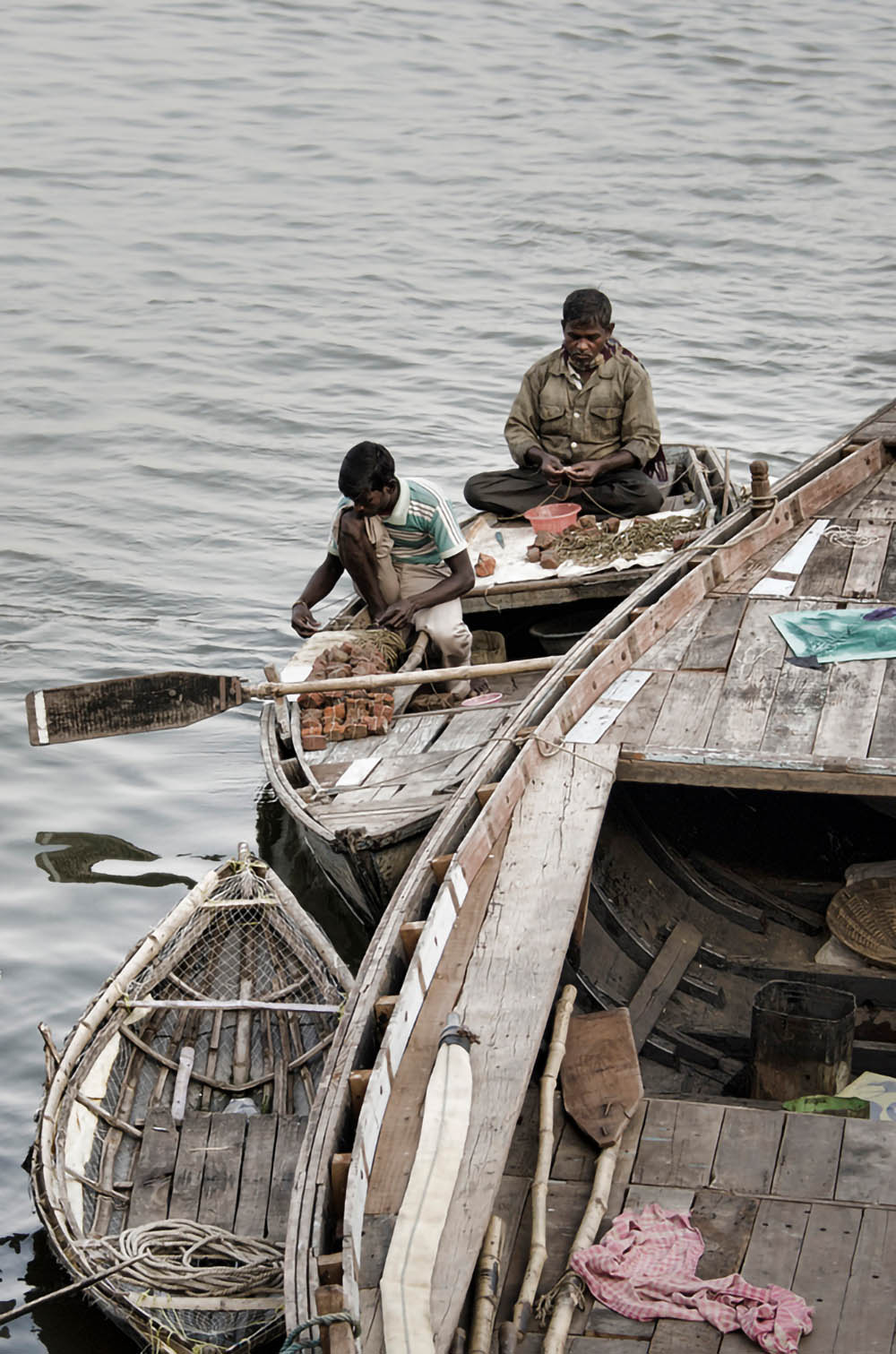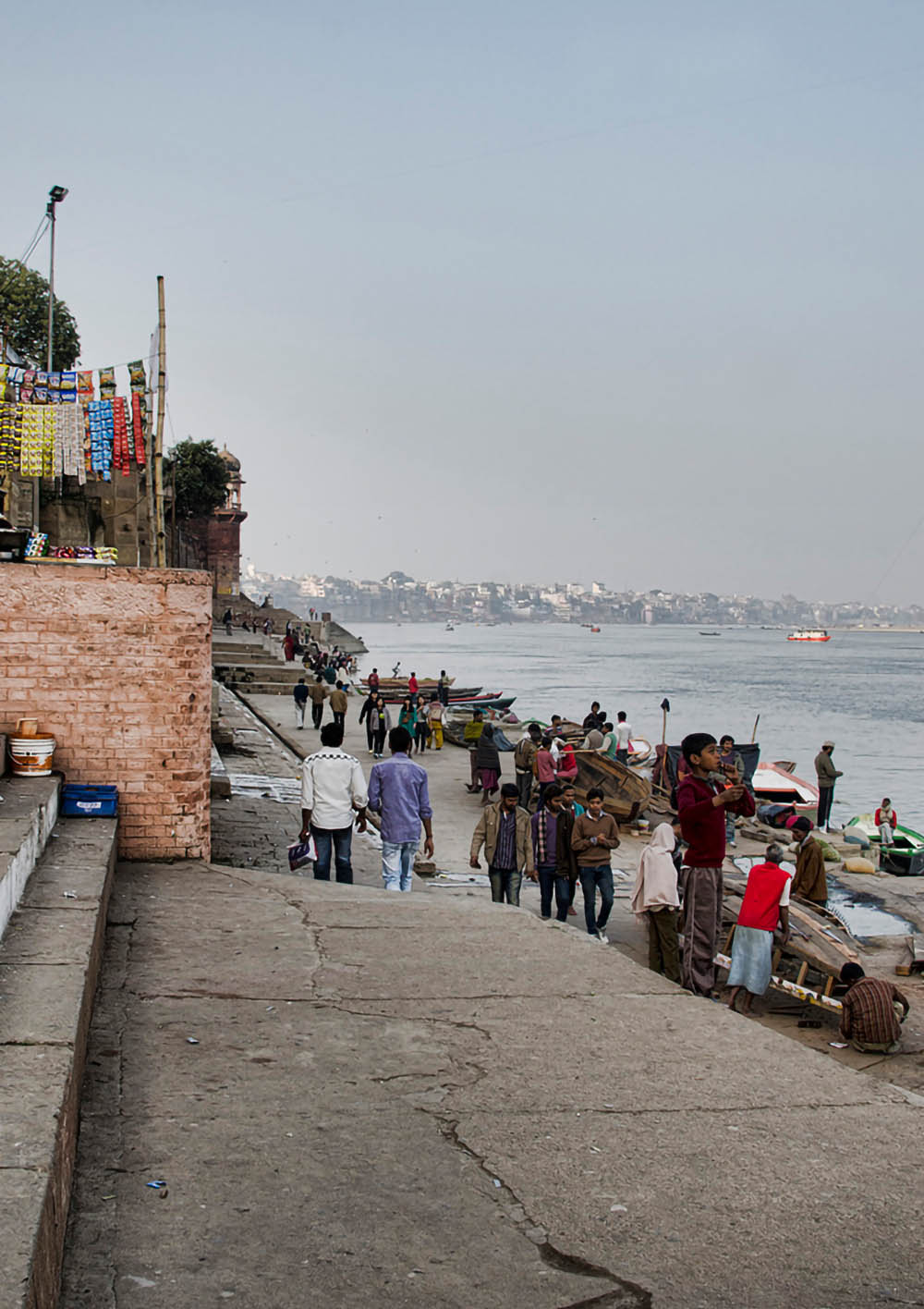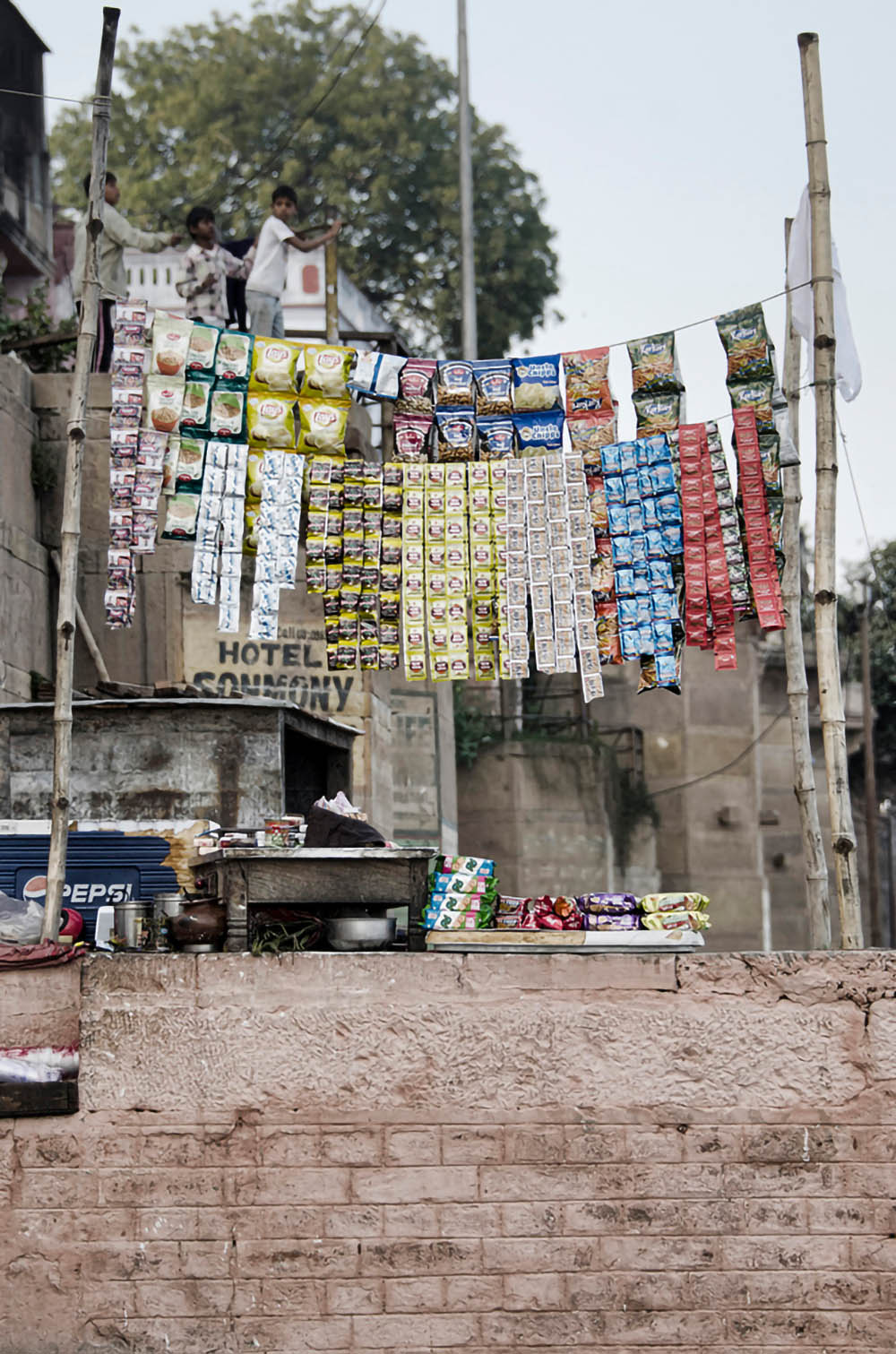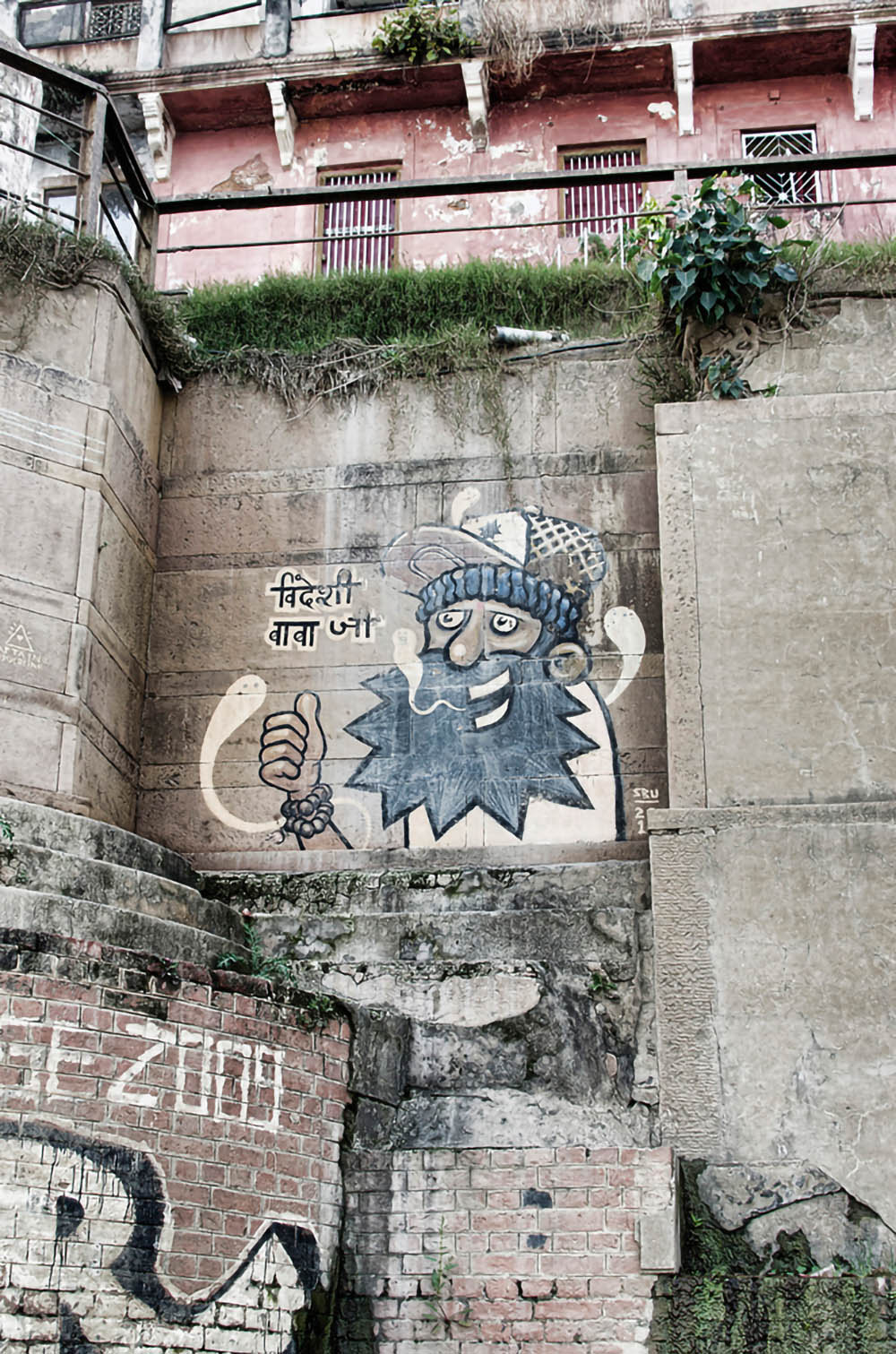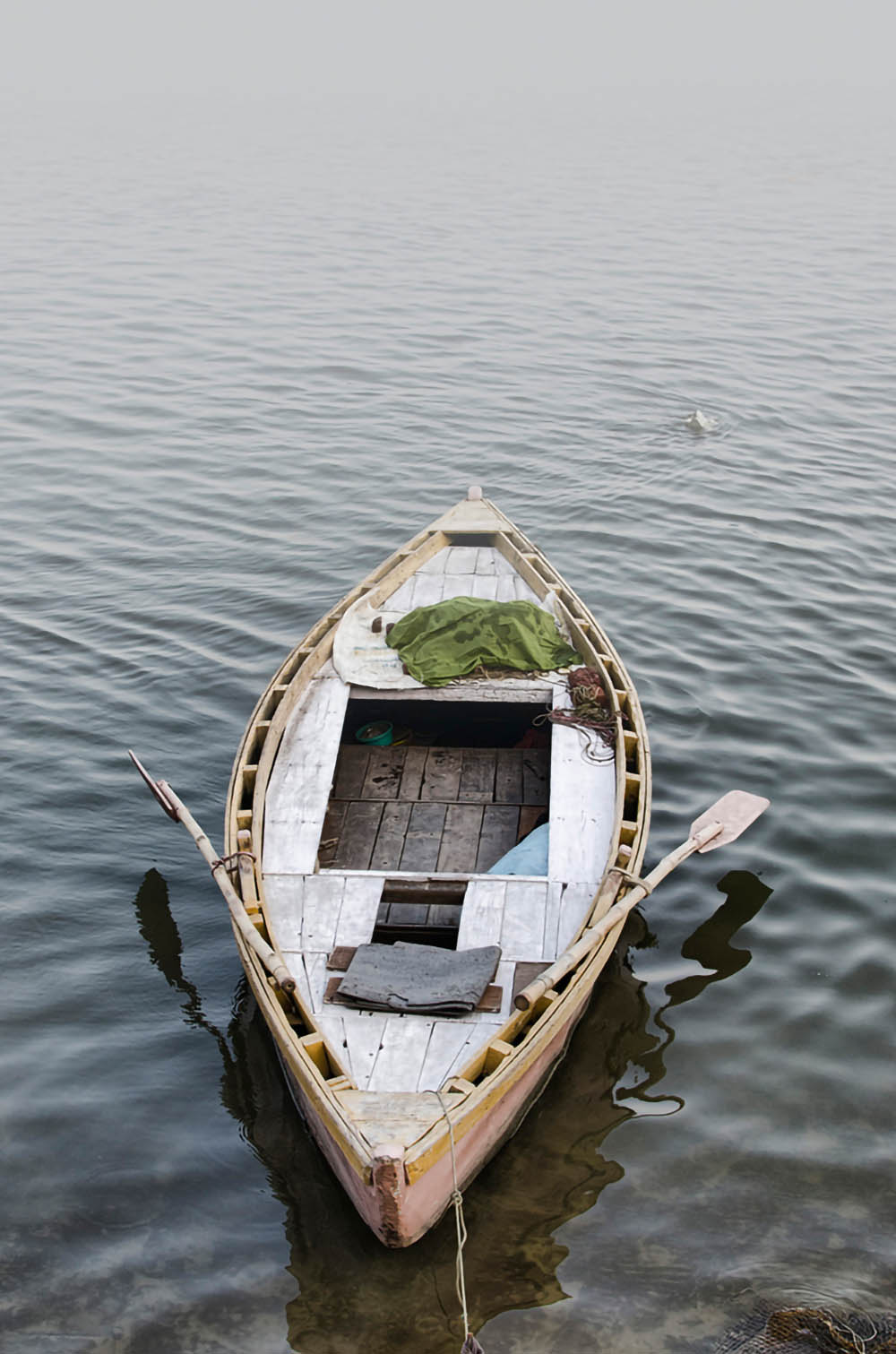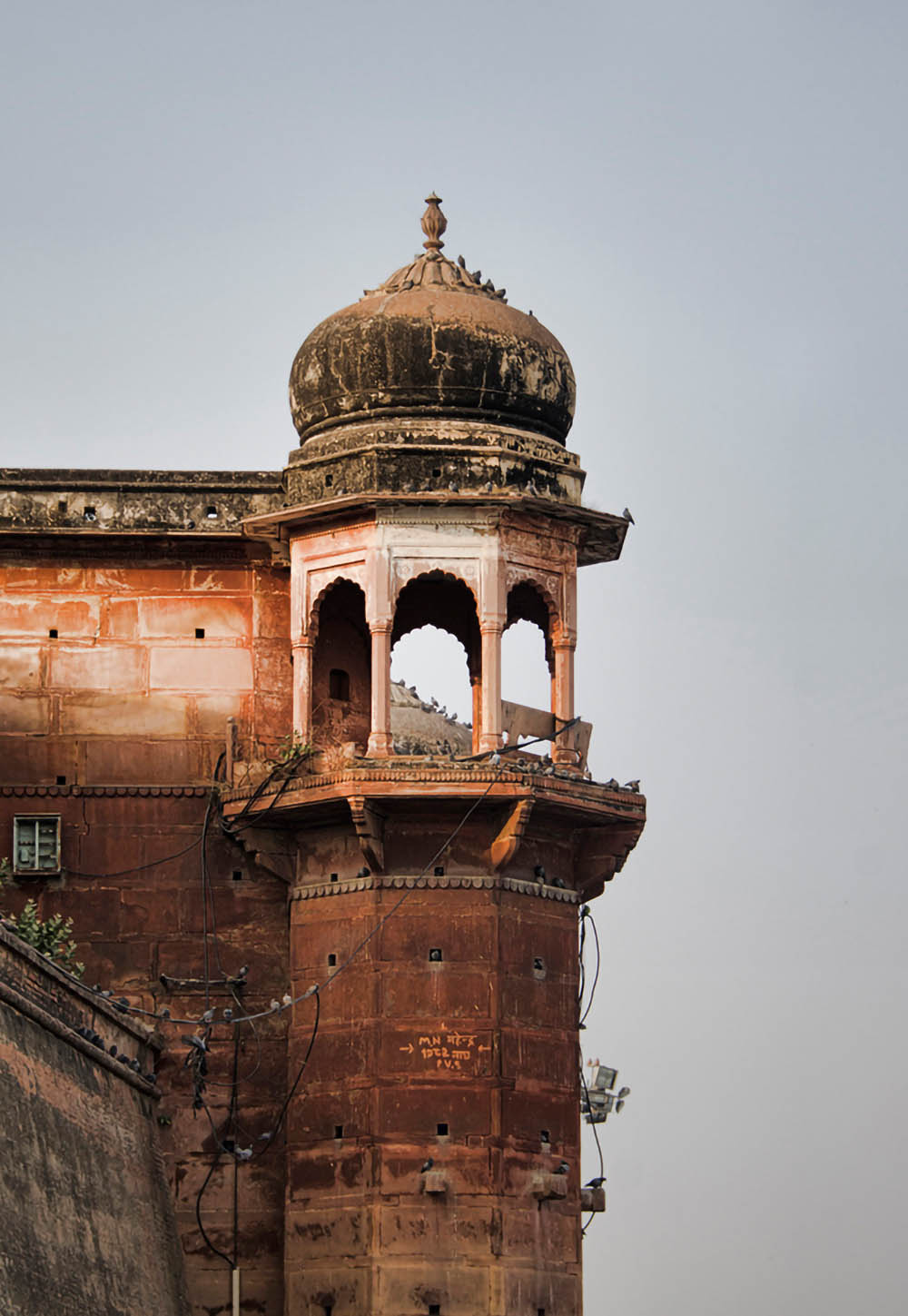Varanasi, set along the banks of the sacred Ganges, is one of the oldest cities in India and among the seven holiest for both Hindus and Jains. From the moment I arrived, I felt a strange peace. This was one of the cities I most wanted to see on my first visit to India—and it did not disappoint.
Many Hindus believe that dying in Varanasi brings salvation. I can’t speak to that, but the cremation ceremonies along the ghats are powerful and humbling to witness. At the burning ghats, families prepare their loved ones on beds of wood, set the pyres alight, and finally commit the ashes to the river. Standing there, watching, you cannot help but feel uneasy—you are present at one of life’s most intimate moments, yet it is all out in the open, part of the city’s rhythm.
According to legend, Varanasi was founded by the god Shiva. The Pandavas—heroes of the Hindu epic Mahabharata—are said to have come here seeking forgiveness from Shiva for the sins of fratricide and Brahmanicide committed during the Kurukshetra war. The ghats themselves stretch endlessly along the riverbanks, stone steps leading down to the sacred waters where pilgrims perform ritual ablutions. On foggy days, they vanish into the mist, giving the impression of a cosmic road between the physical and the divine.
The Manikarnika Ghat, known as the Mahasmasana or “great cremation ground,” is the primary site for Hindu cremations in the city. Just above the ghats rise countless temples—Varanasi is said to hold some 23,000 in total, a density that reminded me of Kyoto in Japan. Beyond the riverfront, narrow alleyways twist into a labyrinth, where you can easily lose your way. Hidden within is the famous Blue Lassi shop, serving a rainbow of lassi flavors. It’s a must-visit.
During our stay, we joined the Flower and Candle Ceremony on the Ganges. First, you buy a small offering from one of the many children selling them along the ghats—a flower cup cradling a candle. Then you hire a boat, rowed or motorized, to take you out onto the river before sunset. And then you wait. As the sun dips lower and the air cools, time seems to slow to a crawl. Finally, when the light fades, you set your candle afloat, whisper a wish, and watch as it drifts away on the current. Tradition says that if your wish comes true, you must return to Varanasi to thank the Ganges with the ceremony again.
The Ganges itself holds a place beyond measure in Indian life. For Hindus, bathing in its waters washes away sins, and dying in Kashi (another name for Varanasi) ensures release from the endless cycle of rebirth. Those who cannot die here often have their ashes brought instead, so that even in death they may join the sacred river.
Varanasi is not only sacred to Hindus—it also played an important role in the development of Buddhism, further deepening its spiritual significance.

